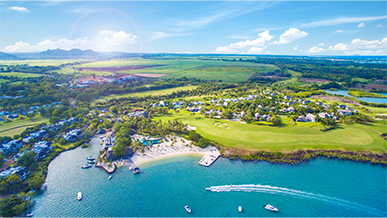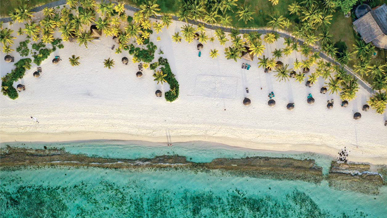Mauritius is making residency even more attractive to South Africans
Why the island is a viable emigration option.
Mauritius has officially reopened its borders to South Africans, ending the 18-month travel ban imposed on SA visitors. The Mauritius Tourism Promotion Authority (MTPA) openly welcomed South African tourists back to the Mauritius shores, which is a token of the relationship between the two countries.
This sigh of relief comes at a time when many South Africans are shopping for countries to emigrate or travel to. Whether expanding their businesses, hoping for a beach retirement or planning a new start with their families, the island already ticks all the right boxes.
If you are contemplating a permanent move, these points explain why Mauritius is a viable option.

Benefits of getting residency in Mauritius
Mauritius offers a stable and diverse economy, low unemployment, thriving business platforms and beach views that demand regular sundowner cocktails.
Investment requirements decreased
The prerequisites to obtaining any type of residency permit through investments have been adjusted to make residency more attractive. The minimum investment required to obtain an Occupational Permit (OP) has dropped from $100 000 to $50 000, while permanent residency permits through property investment have dropped from a threshold of $500 000 to $375 000.
Permit validity periods extended
Retirement permits were valid for only three years but have now been extended to ten years. The validity period of permanent residency permits, as well as work permits, have been extended from ten years to twenty years, which is a substantial adjustment.
Real estate on the island
The idea of owning a holiday villa can be infectious. Expatriates and holiday goers who visit Mauritius often succumb to the dream of living on the island. Ownership can be acquired by investing in a freehold property, or by applying for a renewable 99-year lease agreement where the title deed remains in the name of the applicant.
Self-employment or working remotely
Even self-employment permits will now only set you back $35 000 – with a validity of ten years from the date of issue. For the digital nomad who operates as a freelancer, this creates a dream remote working location, making it hard to pass up on.
These points make the visa application process a rewarding and seamless exercise.
The difficulty of leaving South Africa
While the Mauritian government has undertaken to simplify the immigration process, the difficulty arises when disentangling yourself from the South African tax net. Depending on the intricacies of your circumstances, the exit process can become unnecessarily complex.
For instance, on March 1, 2021, the three-year lock-in rule on retirement funds came into effect in South Africa. Those who were relying on the lump-sum encashment before maturity date of their preservation funds or retirement annuities to invest in Mauritian property, and so ‘buy’ their residency, must now be a non-tax resident of South Africa for three consecutive years before gaining access to their retirement savings.
The process of becoming a non-resident for tax purposes is not automatic, it is a formal declaration to be made to Sars. One needs to be fully compliant with Sars to achieve non-residency bearing in mind there are Capital Gains Tax (CGT) consequences with ceasing tax residency. Being able to objectively prove one’s permanent intention to remain abroad and not to return to SA is the most important requirement.
Making use of financial emigration or applying the Double Taxation Agreement between Mauritius and South Africa is the prudent approach in these circumstances.
Conclusion
Mauritius is not just a holiday paradise in the Indian Ocean, but it is also only a four-hour flight away, making it a hop-skip-and-a-jump from South Africa, to visit family and friends. Precisely for these reasons, Mauritius ticks all the right boxes from competitive business set up costs, a more discretionary immigration process rather than strict legal requirements to a quicker route to permanent residency than countries such as the UK, US and even Portugal.
As such, before embarking or exploring your options on your journey to Mauritius, where the end goal is to obtain permanent residency, it is vital to get clarity on your tax residency status and advice on how to minimise your tax liability when emigrating to Mauritius.
Zainab Bouziane is an expatriate solution specialist at Xpatweb; and Reinert van Rensburg is an expatriate tax specialist at Tax Consulting.
Read the full article on : Moneyweb









